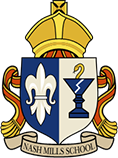History
Our school and local area are rooted in history and this has formed a key element of our current context. It is important that all pupils are able to gain an understanding and appreciation of this in their time at Nash Mills. Through the offer of a sequential, well-planned curriculum and in line with National Curriculum requirements, all of our learners will have:
- A clear understanding of chronology and how events in the past have shaped our today; and what happens today will shape our tomorrow; to see history as a ‘living subject’.
- An ability to study and compare different beliefs and ways of life; to recognise similarities and differences using different sources and to question, evaluate and draw conclusions based on clear arguments.
- A strong sense of identity and an understanding of the history of Nash Mills School and the local area. This will be created by teaching history in a wider context, but also thinking about local connections, allowing children to link their lives to the bigger picture. For example; the importance of John Dickinson and his family to the local area: set within the wider view of Victorian society, looking at industrialisation and the development of world travel and trade links.
- An understanding that history has been gained by studying evidence in the world around us; our aim is that they have the skills to discuss different opinions within history and are able to 'disagree well' with each other.
In all periods studied, pupils will gain an understanding of the main events, time and locations appropriate to the subject being taught. In addition, the following areas of learning will allow for themes within learning across each year group. These areas are:
- Beliefs
- Conflict
- Settlements
- Travel & Exploration
- Food & Farming
- Society
Pupils will have a weekly lesson, with each topic being split into clear curriculum blocks.
- Autumn term – a focus on a history topic which will have themes that link back to previous learning.
- Summer term - a locally-focused topic will be taught allowing pupils to revisit and embed skills across both geography and history through discrete teaching. This will include a visit to a historical site with local relevance, supporting pupils to develop their cultural capital.
- Year 3 will visit St Albans as part of the Roman invasion topic
- Year 4 will visit Mountfitchet Castle as part of the Anglo-Saxons/Middle Ages topic
- Year 5 will visit Apsley Paper Mills as part of the Victorian topic.
Sequencing of Content Our curriculum follows a chronological path in KS2 to enable pupils to understand time and the changes that have occurred. In KS1, the children focus on rich topic content that grabs their attention and engages their imagination. |
Inclusion Our curriculum supports special needs by scaffolding the children that require it, offering adult support when necessary. Difficult vocabulary is explained and worksheets provided where relevant. Conversation and debate is encouraged as a whole class, making the subject accessible for those that find putting pen to paper tricky. |
How we add richness through discussion and cultural capital Our curriculum allows children to form and express an opinion, developing their language and confidence. We teach the children to look back at the past - good and bad - so they can make choices about the role they will play in society as they mature into adults. |
How this subject supports our Christian vision Our curriculum looks at different religions through the ages, as well as pagan beliefs and the later introduction of Christianity in Britain. Children will have an understanding that history needs to consider the evidence; our aim is that they have the skills to discuss different opinions within history and are able to 'disagree well' with each other. |




